M.DevEng Visit-week II
- 11am-12pm PDT: Program introduction and welcome with heads of the concentration areas: Register in advance for this meeting: https://berkeley.zoom.us/meeting/register/tJEudOitrzkqGNJRHwIJ7PJ4k3jJ6-XtSm4m
- 12-1pm PDT: Happy hour on mingle with DevEng faculty and students on Blum Hall OhYay!
Additional events open to admitted students:
Friday, April 23, 2021
1pm-2pm Elizabeth Hausler, CEO of Build Change, speaks at the DevEng290: Innovations in Disaster Response, Recovery and Resilience – Prof. Alice Agogino and Dr. Vivek Rao. Click here to join DevEng290 on Zoom. Thursday, April 29, 11am-1pm PDT – Don’t miss this student-led event brings accomplished faculty members sitting in a variety of departments: Dr. Charisma Acey (City & Regional Planning), Dr. Amy Pickering (Environmental Engineering), and Dr. Sarah Vaughn (Anthropology) discussing Development Engineering: Interrogating Foundations & Defining New Horizons.M.DevEng Visit-week I
Monday, March 29 – Friday, April 2
We are excited about meeting you all during our virtual visit-week for the M.DevEng program at UC Berkeley. This event will offer prospective students the opportunity to learn more about the M.DevEng program and meet the faculty, current DevEng graduate students, and your own admitted cohort. You will have an opportunity to learn about projects you can pursue as part of your degree, and explore Blum Hall and the UC Berkeley campus virtually!
See the agenda below, and stay tuned as we keep adding more virtual events open for our prospective students! We will share all the Zoom links for all these different events on Sunday, March 28. In the meanwhile, make sure you sign up for a free Zoom account and download Zoom prior to joining the sessions! If you get a message:
"This meeting is for authorized participants only Click "Sign In to Join" to sign into Zoom with an email address authorized for joining this meeting"
You simply need to create a Zoom account with your email to Log in to the Zoom.
Also feel free to wander around our spaces on OhYAY and maybe run into fellow students and faculty at any time. See: https://ohyay.co/s/BerkeleyBlumHall
If you are having any problems to log-in to any of the events, hop into our Troubleshoot Room on OhYay and click on the cell-phone to send an immediate text message.
Live events
All events are listed on Pacific Daylight Time (PDT)! Click here to add all events to your Google Calendar
Monday, March 29
9-10am: M.DevEng Welcome Session. Register here for the Zoom link.
2pm-3pm M.DevEng Office Hours with Prof. Dan Kammen: Learn more about project opportunities such as: smart, low-carbon transportation; energy access via mini-grids; energy-agriculture synergies. Click here to join Kammen on Zoom.
2pm-3pm Lab visit @ Fletcher Lab. Join Prof. Dan Fletcher at the Fletcher Lab, Diagnostics Team Meeting. Click here to join Fletcher on Zoom.
4pm-5pm Join the classroom – CE209 Prof. Ashok Gadgil Design for Sustainable Communities, Guest Speaker: Anustubh Agnihotri, UC Berkeley speaking on analysis of successful and failed projects to improve the conditions in low-resource settings. Click here to join Gadgil on Zoom.
Tuesday, March 30
9:30am-11am Join the Classroom – INFO251 Prof. Josh Blumenstock: Applied Machine Learning. View Lecture 1 Recording here, use passcode Ce2qB=RJ 11am-12pm Office Hours with Prof. Dan Fletcher. Drop by and learn about the following projects 1. Evaluation of mobile technologies for Schistosomiasis diagnosis 2. Development of protocols for Soil-transmitted helminth diagnosis 3. Use of mobile phone microscopy for diagnosis of filarial diseases 4. Development of a Cas13-based diagnostic device for TB. Click here to join Fletcher on Zoom. 12:30pm-2pm Join the Classroom – ERG 160 Prof. Dan Kammen: Climate Justice Course. Click here to join ERG160 on Zoom.1:30pm-2:30pm DevEng students mixer on OhYAY!
This event will be hosted on ohyay, a new place for virtual experiences. ohyay works best on a laptop or desktop computer (not mobile devices, like a cell phone or tablet), and runs the fastest on Google Chrome. We also recommend using headphones for a better auditory experience. 2:10pm-2:40pm Office Hours with Prof. Josh Blumenstock. Hop in to hear about project ideas at the Data-Intensive Development Lab. Click here to join Blumenstock on Zoom. 4pm-5pm Office Hours with Prof. Mathias Kondolf. Hop in and hear about DevEng projects to be specified within the general area of sustainability of reservoirs under environmental change, intergenerational equity in management and sustainability of reservoirs, impacts of dams on river processes and livelihoods, sustainability of river-dependent landforms (e.g. Mekong Delta) ,restoration of river processes, dam removal. Additional project to be specified within the general area of life-cycle analysis of concrete. Click here to join Kondolf on Zoom.Wednesday, March 31
9:30am-11am Join the webinar – Measuring Development 2021 Keynote Address – Machine Learning, Health, and Development: Ziad Obermeyer, Blue Cross of California Distinguished Associate Professor of Health Policy and Management and CEGA Faculty Affiliate, UC Berkeley. Click here to register to this event.
10am-11am Join the classroom – DevEng290 Prof. Matthew Potts: Digital Transformations in Development: Guest Speaker Dr. Dan Hammer – Earthrise Media. Click here to join DevEng290 on Zoom.
10:10am-11am Office Hours with Prof. Ashok Gadgil. Click here to join Gadgil on Zoom.
12pm-1pm Lab Visit The Renewable and Appropriate Energy Laboratory (RAEL) – Prof. Dan Kammen. Zoom link coming soon!
12pm-2pm Join the classroom DevEng210 Prof. Alice Agogino & Dr. Yael Perez: Impact Design – Development Engineering Seminar. Students presentations: Case-study symposium. Hear about Development Engineering case-studies used by students for their research and offer your thoughts and feedback. Click here to join DevEng210 on Zoom.
3pm-4pm Office Hours with Prof. Amy Pickering. Learn about Prof. Amy Pickering research and get inspired on some projects ideas such as developing an open-source foaming soap dispenser that can be built with readily available materials in resource-constrained settings. Foaming soap has the potential to substantially reduce the amount of soap needed for effective handwashing, therefore reducing both the time and monetary costs of soap refilling. As well as developing and testing creative business models for scaling up implementation of low-cost passive chlorination to improve drinking water quality in resource-constrained settings. Click here to join Pickering on Zoom.
3:30pm-4pm Office Hours with Prof. Clair Brown. Click here to join Brown on Zoom.
4pm-5pm Lab Visit: Sustainable Shared-Prosperity Policy Index (SSPI) With Prof. Clair Brown. Click here to join Brown’s Lab on Zoom.
4:10-5pm Office Hours with Prof. Nelson. Click here to join Nelson on Zoom.
4pm-5pm Join the classroom CE209 with Prof. Ashok Gadgil, on “How to select what problem to try to solve”. Guest Speaker Dr. Susan Amrose of MIT. Click here to join CE209 on Zoom.
4-5:30pm Join the Classroom- ERG Colloquium Series Spring 2021: Maxine Burkett. Click here to join ERG Colloquium on Zoom.
Thursday, April 1
9:30am-11am Visit the classroom INFO251: Applied Machine Learning with Prof. Josh Blumenstock. View Lecture 2 Recording here, use passcode hhfvI08$
10am – 11am Office Hours with Prof. Matthew Potts. Hop in and hear about project ideas with Prof. Potts such as: Maximizing social, economic, and environmental benefits from gene editing technologies in agriculture; Reducing the environmental impacts of food, energy & water systems in and around cities; Scaling Nature Climate Solutions; Tree Cover Restoration in Lower- & Middle-Income Countries; and Co-Production of Ecosystems Services. Click here to join Potts on Zoom.
1pm-2:00pm Visit the Pickering Lab. Click here to join Pickering’s lab on Zoom.
5pm-6pm Office Hours with Prof. Alice Agogino. Hop in and hear about M.DevEng projects such as Disaster Response Through Rapidly Deployable Sensor Robots and sovereignty and design with Native American Nations in the US. Click here to join Agogino on Zoom.
Friday, April 2
9am-10am Office Hours with Dr. Yael Perez. Learn about co-design projects with local communities and Indigenous, culturally-sensitive education projects. Click here to join Perez on Zoom.
12pm-1pm Happy Hour on OhYAY!
This event will be hosted on OhYay, a new place for virtual experiences. ohyay works best on a laptop or desktop computer (not mobile devices, like a cell phone or tablet), and runs the fastest on Google Chrome. We also recommend using headphones for a better auditory experience.
1pm-2:30pm Join here for the classroom DevEng290: Innovations in Disaster Response, Recovery and Resilience – Prof. Alice Agogino and Dr. Vivek Rao. Click here to join DevEng290 on Zoom. This week are the students’ mid-term presentations per the following schedule:
- 1:10 pm Introduction;
- 1:15-1:30 Aggregating Data for Search and Rescue Operations;
- 1:30-1:45 Awareness of personnel and process well-being and condition post-disaster;
- 1:45-2:00 Developing resilient and robust position, navigation, and timing;
- 2:00-2:15 Preparing air assets for disaster response and recovery;
- 2:15-2:30 Synchronizing real-time data from diverse sources for disaster response;
- 2:30-2:45 Digital Transformation of Moroccan Disaster Response Teams.
4:30pm-5:00pm Lab Visit: Corporate data analysis on Engagement strategy with Prof. Clair Brown. Our research team is using corporate data to analyze how well the role of engagement with fossil fuel companies by CalPERS (the largest public pension fund in the US) is working to reduce their carbon footprint. Learn about the Corporate Data Set and how it can be used to analyze the carbon emissions and management strategies for multinational companies. Learn about the proprietary corporate data set that you can use at UC Berkeley (licensed to Economics faculty and students working with them). Click here to join Brown’s lab.
Faculty Lab and Office Hours
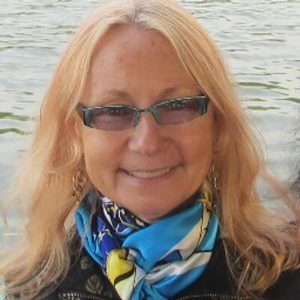
Prof. Alice Agogino is Roscoe and Elizabeth Hughes Professor of Mechanical Engineering and affiliated faculty with the Energy Resources Group, Women and Gender Studies, Development Engineering, and Studies in Science, Engineering and Mathematics Education (SESAME), UC Berkeley.
Education Director and Chair of Development Engineering Graduate Group, Blum Center for Developing Economies.
Office Hours with Prof. Agogino: Thu, April 1, 5pm – 6pm PDT.
- Community-based research and scholarship, co-design, and sustainable design, design as freedom, and sovereignty and design with Native American Nations in the US.
Office Hours with Dr. Yael Perez: Fri, April 2, 9am-10am PDT

The BEST (Berkeley [Energy and Sustainability Technologies/ Expert Systems Technologies/ Emergent Space Tensegrities]) Lab is located in 230 Hesse Hall on the UC Berkeley campus. Hesse Hall was designed by John Galen Howard and named for the the founder of the College of Mechanics, Frederick Godfrey Hesse.
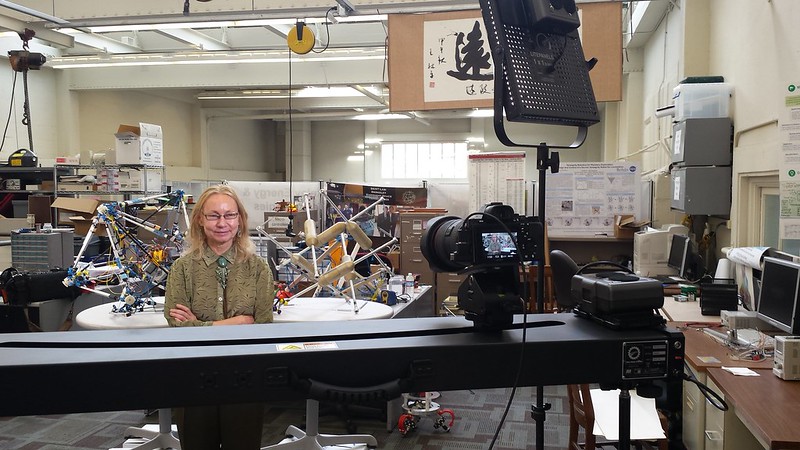
M.DevEng Project Examples:
- Disaster Response Through Rapidly Deployable Sensor Robots.
More Information:
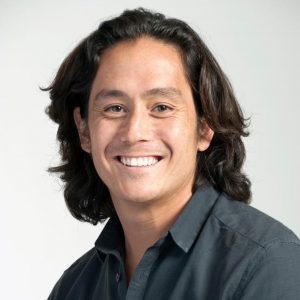
Prof. Joshua Blumenstock is an Assistant Professor at the U.C. Berkeley School of Information, the Director of the Data-Intensive Development Lab, and the co-Director of the Center for Effective Global Action
Office Hours with Prof. Blumenstock: Tue, March 30, 2:10pm – 2:40pm PDT
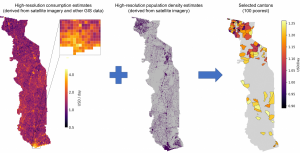
The Data-Intensive Development Lab explores how novel sources of data, and new computational algorithms, can promote sustainable global development. Our faculty, students, researchers, and partners bring methodological expertise in machine learning, statistics, and large-scale analytics to address the challenges facing the world’s poor.
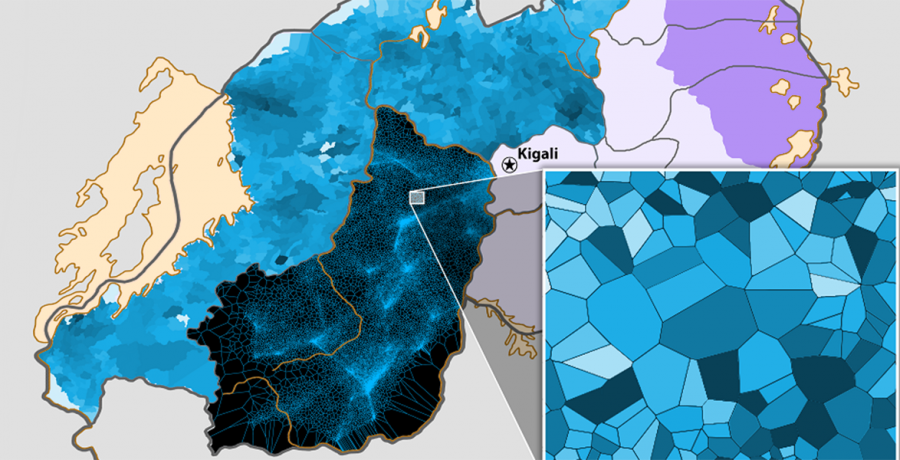
Prof. Blumenstock’s research lies at the intersection of machine learning and development economics, and focuses on using novel data and methods to better understand the causes and consequences of global poverty.
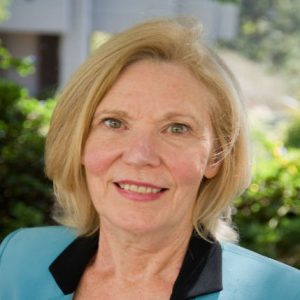
Prof. Clair Brown is Labor economics and a Development Engineering faculty. She is the Director of the Center for Work, Technology and Society, and past Director of the Institute of Industrial Relations. She is an Omron Fellow at the Doshisha Institute of Technology in Japan.
Office Hours with Prof. Brown: Wed, March 31, 3:30pm – 4pm PDT

The Center for Work Technology and Society is exploring how globalization has been affecting high-tech engineers and their work, especially in the semiconductor industry. Prof. Brown with her research team has created a policy index that documents the policies being practiced around the world that create an economy that cares for people and the planet. We know the policies to create a sustainable world, to share prosperity and provide a comfortable, meaningful life for all people, and to reduce suffering globally. Three pillars—Sustainability, Market Structure, Public Goods and Services—represent government policies that create and govern the economy to create the outcomes desired by the society.
Lab Visit Hours: Wed, March 31, 4pm-5pm PDT

M.DevEng Project Examples:
1. Use corporate database to analyze large corporations management practices related to their carbon emissions (Scope 1, 2, 3) and implementation of their science-based targets to reduce emissions.
2. Analyze national policies to create a sustainable shared-prosperity economy that cares for all people and the planet.
3. Use my SSPI (Sustainable Shared-Prosperity Policy Index for 60 countries) to guide you in a global application of an alternative economics framework to achieve the SDGs.

Prof. Daniel Fletcher is Associate Director for Research of the Blum Center, Faculty Director of the Big Ideas Contest, Purnendu Chatterjee Chair in Engineering Biological Systems, and a Faculty Scientist at the Lawrence Berkeley National Laboratory. Between 2015 and 2019, he served as Chair of the Bioengineering Department.
Office Hours with Prof. Fletcher: Tue, March 30, 11am – 12pm

The Fletcher Lab develops diagnostic technologies and studies mechanical regulation of membrane and cytoskeleton organization in the context of cell motility, signaling, and host-pathogen interactions. We specialize in development of optical microscopy, force microscopy, and microfluidic technologies to understand fundamental organizational principles through both in vitro reconstitution and live cell experiments.
Lab Visit Hours: Mon, March 29, 2pm-3pm PDT
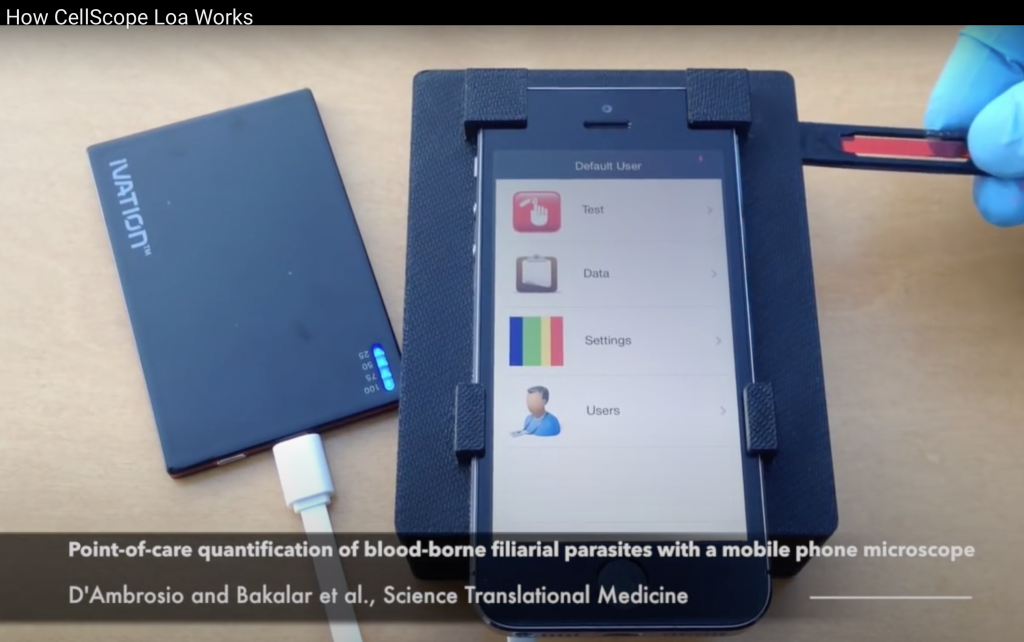
M.DevEng Project Examples:
- Evaluation of mobile technologies for Schistosomiasis diagnosis.
- Development of protocols for Soil-transmitte
d helminth diagnosis. - Use of mobile phone microscopy for diagnosis of filarial diseases.
- Development of a Cas13-based diagnostic device for TB.
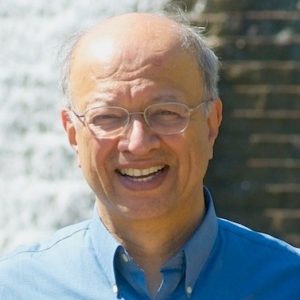
Prof. Ashok Gadgil is Faculty Senior Scientist at the Lawrence Berkeley National Laboratory (Berkeley Lab), and Professor of Civil and Environmental Engineering. He specializes in heat transfer, fluid dynamics, and design for development. He also has substantial experience in technical, economic, and policy research on energy efficiency and its implementation – particularly in developing countries.
Office Hours with Prof. Gadgil: Wed, March 31, 10:10 – 11:00am PDT
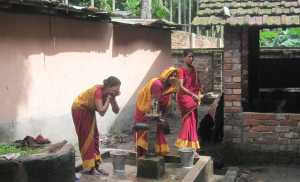
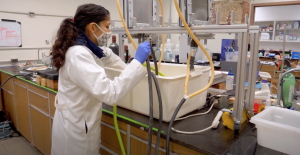 ECAR / ACAIE for Removal of Arsenic from Ashpond Water
ECAR / ACAIE for Removal of Arsenic from Ashpond Water
M.DevEng Project Examples:
- Maturing, and helping dissemination of, a method to make at very low-cost a highly effective disinfectant for improved sanitation (including against COVID19) in the developing countries.
- Developing a reliable, effective, and affordable method to remove toxic levels of Hexavalent Chromium from drinking water.
- Investigating a practical method to mass manufacture a reliable non-electric Infant Warmer for low birth-weight infants in poor countries.
- Participate in a (to be newly launched) effort in a Native American community to demonstrate reduction in acute-episodes of childhood asthma, when using low-cost household aerosol filters.
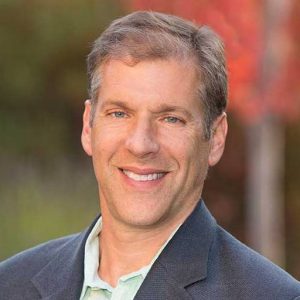
Prof. Daniel Kammen is the Class of 1935 Distinguished Professor of Energy at the University of California, Berkeley, with parallel appointments in the Energy and Resources Group, the Goldman School of Public Policy, and the department of Nuclear Engineering. He was appointed the first Environment and Climate Partnership for the Americas (ECPA) Fellow by Secretary of State Hilary R. Clinton in April 2010.
Kammen is the founding director of the Renewable and Appropriate Energy Laboratory (RAEL), Co-Director of the Berkeley Institute of the Environment, and Director of the Transportation Sustainability Research Center. He has founded or is on the board of over 10 companies, and has served the State of California and US federal government in expert and advisory capacities.
Office Hours with Prof. Kammen: Mon, March 29, 2pm – 3pm PDT

The Renewable and Appropriate Energy Laboratory (RAEL) is a unique new research, development, project implementation, and community outreach facility based at the University of California, Berkeley in the Energy and Resources Group and the Department of Nuclear Engineering. RAEL focuses on designing, testing, and disseminating renewable and appropriate energy systems. The laboratory’s mission is to help these technologies realize their full potential to contribute to environmentally sustainable development in both industrialized and developing nations while also addressing the cultural context and range of potential social impacts of any new technology or resource management system.
Lab Visit Hours: Wed, March 31, 12pm-1pm PDT

M.DevEng Project Examples:
- Smart, low-carbon transportation;
- Energy access via mini-grids;
- Energy-agriculture synergies
More information:
My Climate Journey Podcast #126
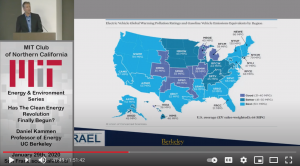 Kammen on climate and justice at the MIT Club of Northern California
Kammen on climate and justice at the MIT Club of Northern California

Prof. Matt Kondolf is a fluvial geomorphologist specializing in environmental river management and restoration. At Berkeley he teaches courses in hydrology, river restoration, and environmental science and planning. He has served as advisor to US and state agencies on river management and restoration, and provided expert testimony before the US Congress, the California Legislature, the US Supreme Court, and the International Court of Justice and Permanent Court of Arbitration in the Hague. He is a EURIAS fellow at the Collegium – Lyon Institute for Advanced Studies, University of Lyon, affiliated with the CNRS research laboratory Environnement Ville Société.
Office Hours with Prof. Kondolf: Tue, March 30, 4:00 – 5:00pm.

The RiverLab is Prof. Kondolf’s research group on river processes, infrastructure sustainability, water-energy tradeoffs, flood risk management, and river restoration. Kondolf’s research focuses on human-river interactions, with emphasis on managing of flood-prone lands, managing sediment in rivers and reservoirs, and river restoration, and has published extensively on these topics. His book Tools in Fluvial Geomorphology (2nd edition, Wiley) is a reference in the field.

M.DevEng Project Examples:
- Sustainability of reservoirs under environmental change
- Intergenerational equity in management and sustainability of reservoirs
- Impacts of dams on river processes and livelihoods
- Sustainability of river-dependent landforms (e.g. Mekong Delta)
- Restoration of river processes, dam removal.
- Additional project to be specified within the general area of life-cycle analysis of concrete.
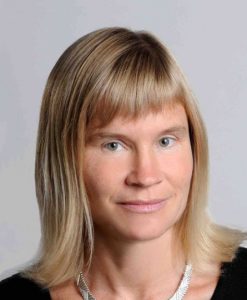
Prof. Kara Nelson is a Professor in Civil and Environmental Engineering and the Associate Dean for Equity and Inclusion in the College of Engineering. Prof. Nelson leads the Engineering Thrust at the Engineering Research Center for Reinventing our Nation’s Urban Water Infrastructure (ReNUWIt), and recently served on the expert panel advising the State of California on the feasibility of direct potable water reuse.
Office Hours with Prof. Nelson: Wed, March 31, 4:10pm-5:00pm PDT

Prof. Nelson’s research program addresses innovative strategies to improve the sustainability of, and equitable access to, urban water infrastructure, including technologies for potable and non-potable water reuse, nutrient recovery, decentralized systems, intermittent water supply, household water treatment, and affordable sanitation. In particular, Dr. Nelson’s research focuses on the control of waterborne pathogens, including mechanisms of pathogen inactivation and new detection methods. She has published over 80 articles in peer-reviewed journals.
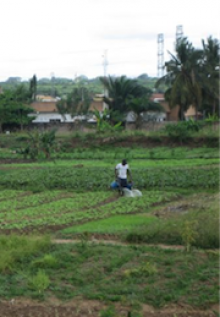
M.DevEng Project Examples:
- Monitoring SARS-CoV-2 concentrations and strains in wastewater to inform an effective public health response.
- Pathways of Enteric Pathogen Transmission in Rural Bangladeshi Households.
- Microbial Communities in drinking water distribution systems.
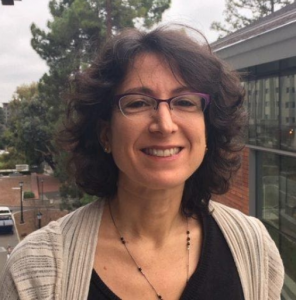
Dr. Yael Perez is a Research Fellow at the Blum Center for Developing Economies and is the InFEWS Program Coordinator. She holds a PhD in Architecture from UC Berkeley.
Office Hours with Dr. Perez: Fri, April 2, 9am-10am PDT

Currently, she leads the Blum Review on Development Impact, a repository of Development Engineering case studies. For over a decade, she has been collaboratively leading CARES—Community Assessment of Renewable Energy and Sustainability—a team of UC Berkeley faculty and students working with Native American Citizens in their pursuit of sustainable development. Before joining the Blum Center, she was a visiting scholar at IIT Mandi (India).

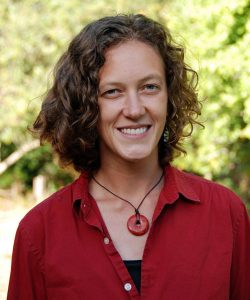
Prof. Amy Pickering is the Blum Center Distinguished Chair in Global Poverty and Practice jointly appointed in the Department of Civil and Environmental Engineering and the Blum Center for Developing Economies.
Office Hours with Prof. Pickering: Wed, March 31, 3pm – 4pm PDT

The Pickering Lab research sits at the Intersection of engineering and global health to design, evaluate, and disseminate novel technologies and strategies to improve child health in low-resource settings. The Pickering lab is affiliated with Civil and Environmental Engineering and the Blum Center at Berkeley. Our work is focused on using development engineering to design, evaluate, and scale new water, hygiene, and sanitation technologies to improve child health and alleviate poverty. We also study zoonotic and environmental transmission of infectious disease in resource constrained settings.
Lab Visit Hours: Thu, April 1, 1pm-2:30pm PDT
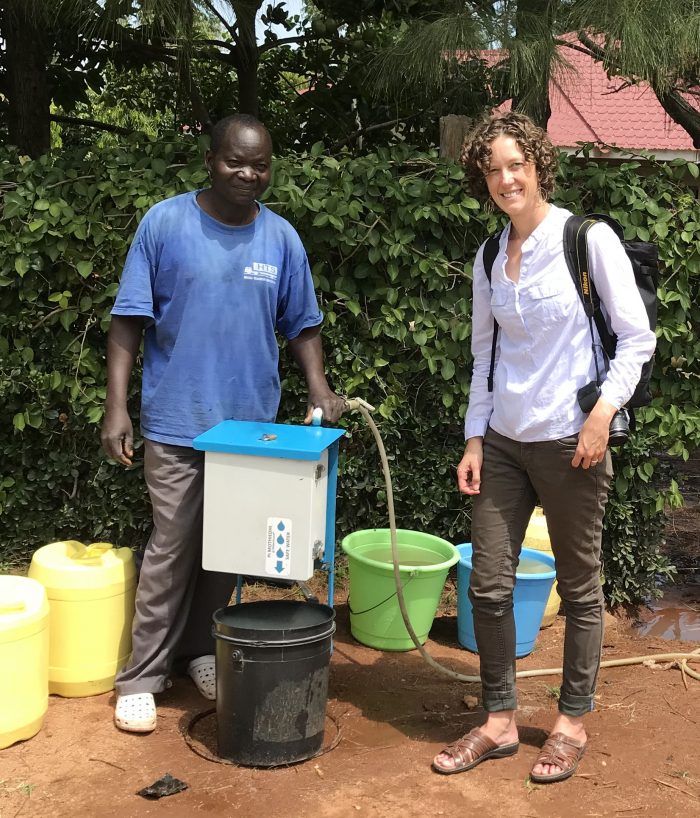
M.DevEng Project Examples:
- Developing an open-source foaming soap dispenser that can be built with readily available materials in resource-constrained settings. Foaming soap has the potential to substantially reduce the amount of soap needed for effective handwashing, therefore reducing both the time and monetary costs of soap refilling.
- Developing and testing creative business models for scaling up implementation of low-cost passive chlorination to improve drinking water quality in resource-constrained settings.
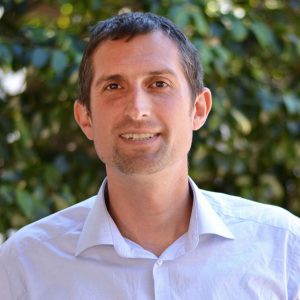
Prof. Matthew Potts is a Professor in the Department of Environmental Science, Policy, and Management and S.J Hall Chair in Forest Economics. In addition, he is Associate Director for Sustainable Development of the Blum Center for Developing Economies and Vice Chair of the Graduate Group in Development Engineering.
Office Hours with Prof. Potts: Thu, April 1, 10am – 11am PDT

The Potts Research Group focuses on the co-production by human and natural systems of ecosystem services and natural pathways for carbon sequestration.

M.DevEng Project Examples:
- Maximizing social, economic, and environmental benefits from gene editing technologies in agriculture.
- Reducing the environmental impacts of food, energy & water systems in and around cities.
- Scaling Nature Climate Solutions.
- Tree Cover Restoration in Lower- & Middle-Income Countries.
- Co-Production of Ecosystems Services.

Dr. Joeva Rock is a Lecturer in the Development Engineering program. She has a Ph.D. in Anthropology from the American University. Her research focuses on agricultural biotechnologies, international development, and social movements on the African continent. She’s currently completing a book project on genetically modified crops and food sovereignty in Ghana and am engaged in a couple of additional research projects. The first, in collaboration with the GEAP3 Network, explores the potential political and agronomic implications of genome-editing for agricultural systems in Africa. The second, in collaboration with the University of San Francisco’s Department of International Studies and Data Institute, uses tools from data science, social science, and digital humanities to build interactive platforms for the public to explore agricultural biotechnologies on the African continent.

Dr. Rock’s research has been funded by the Fulbright-Hays Program and the Wenner-Gren Foundation, and featured in African Affairs; Culture, Agriculture, Food and Environment; Global Bioethics; The Nation; Popula; and Foreign Policy in Focus. She also serve as a contributor to Africa is a Country, where she writes on issues related to development, agriculture, and social change.

Dr. Rock teaches GPP 115 – Global Poverty: Challenges and Hope and DevEng 202 – Critical Systems of Development. These classes seek to provide a rigorous understanding of 20th century development and thus 21st century poverty alleviation. Students take a look at popular ideas of poverty alleviation, the institutional framework of poverty ideas and practices, and the social and political mobilizations that seek to transform the structures of poverty.
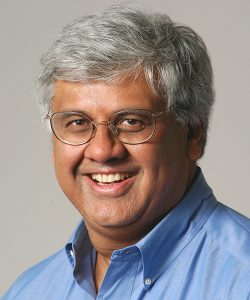
Prof. Shankar Sastry is Faculty Director of the Blum Center for Developing Economies, the Thomas Siebel Professor of Computer Science, and Co-Director of the C3.ai Digital Transformation Institute. He is also the Faculty Director of the FHL Vive Center for Enhanced Reality. He has faculty appointments in UC Berkeley’s Departments of Electrical Engineering and Computer Sciences, Bioengineering, and Mechanical Engineering.

Prof. Sastry areas of personal research are AI and Machine Learning, resilient cyber physical systems, mechanism design and incentive theory for the digital transformation system of complex societal scale systems networks, cybersecurity, autonomous robotic vehicles and robots, computer vision, nonlinear and adaptive control, control of hybrid and embedded systems.

M.DevEng Project Examples:
- Dynamics and control of robotic manipulators for improved interaction with the environment
Other Events and Information
When you attend UC Berkeley you are joining the unique ecosystem of the San Francisco Bay Area and Silicon Valley – home to 2,000+ tech companies, the densest concentration in the world. We proved unparalleled learning by engaging experts from this ecosystem. This is all in addition to a thriving music, art and food scene. Examples of attractions below.
A series of collaborative workshops with the goal of expanding educational and career opportunities for Indigenous students through research in Food, Energy, and Water Systems. This material is based upon work supported by the National Science Foundation under Grant No. DGE-1633740. Co-InFEWS Workshop videos are available here: https://blumcenter.berkeley.edu/academics/infews/workshop/videos/
Big Ideas
is an innovation ecosystem that provides training, networks, recognition and funding to interdisciplinary teams of students who have transformative solutions to real-world problems.
- Big Ideas Social Innovators Speaker Series #1: Edvisorly
- Big Ideas Social Innovator Speaker Series #2: Maria Artunduaga, Respira Labs
- Big Ideas Social Innovator Speaker Series #3: Dr. Kevin Kung, Takachar
- More from the Big Ideas Channel
UC Berkeley list of events and attractions
Want to get a taste of life at Berkeley? Daily activities, performances and events are open to the campus community and the general public. Expand your mind, stroll through the redwoods and root for the Golden Bears
Cal Day April 24
Cal Day is the perfect way to kick off Cal Week — Saturday, April 24th until Friday, April 30th. On Cal Day, this website will host a number of special online events, including a talk with our newest Nobelist, specialized campus tours, introductions to our campus landmarks, student engagement events and a whole lot more. In the video below, enjoy on-campus scenes from one of our earlier Cal Days. We hope this gives you just a taste of what our campus has to offer. Go Bears! https://calday.berkeley.edu/
Asynchronous events and information:
Visit labs and research projects associated with the Virtual Visit Day:
Prof. Chrisma Acey
Prof. Alice Agogino
- PPN and Navajo Culturally Sensitive education projects: https://youtu.be/jpNrR2xeBj0
Prof. Joshua Blumenstock
The Data-Intensive Development Lab:
Prof. Clair Brown
Center for Work, Technology, and Society
Prof. Daniel Fletcher
Fletcher Lab — mobile healthcare, diagnostics, infectious disease biology
Prof. Ashok Gadgil
GadgilLab
and projects:
ECAR / ACAIE for Removal of Arsenic from Ashpond Water: https://www.youtube.com/watch?v=1W9ih2BPJVs
https://vimeo.com/173068589
Prof. Dan Kammen
The Renewable and Appropriate Energy Laboratory (RAEL):cMy Climate Journey #126 https://www.myclimatejourney.co/episodes/daniel-kammen
- Kammen at Harvard/Radcliffe: https://www.youtube.com/watch?v=nxSf4gjbO24
- Kammen on climate and justice at the MIT Club of Northern California: https://www.youtube.com/watch?v=fmzfRTzN8Rk
Prof. Kara Nelson
Lab:
- monitor Bay Area sewage for COVID-19 – https://youtu.be/acgVItqRSlo
Prof. Amy Pickering
The Pickering lab is affiliated with Civil and Environmental Engineering and the Blum Center at Berkeley. Our work is focused on using development engineering to design, evaluate, and scale new water, hygiene, and sanitation technologies to improve child health and alleviate poverty. We also study zoonotic and environmental transmission of infectious disease in resource constrained settings.
Big Ideas
Big Ideas Social Innovators Speaker Series #1: Edvisorly
Big Ideas Social Innovator Speaker Series #2: Maria Artunduaga, Respira Labs
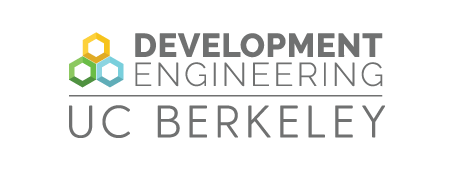
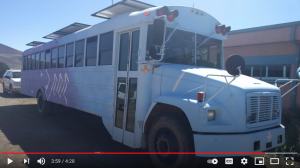
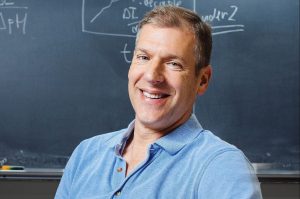
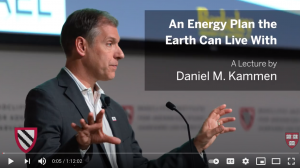 Kammen at Harvard/Radcliffe
Kammen at Harvard/Radcliffe